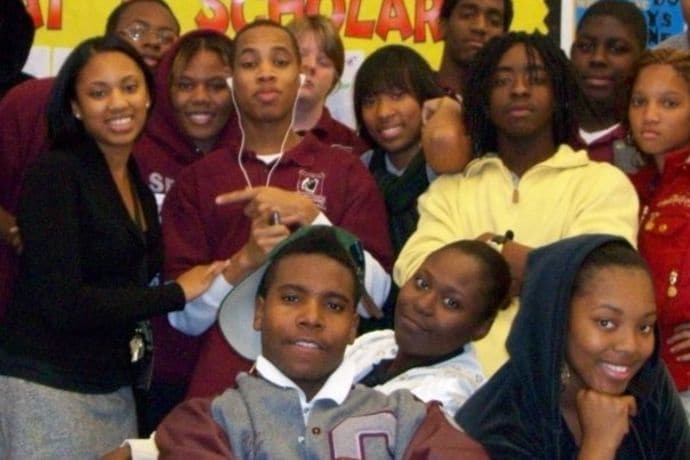How TFA Prepared A Public Defender To Take On The Courtroom

March 2, 2016
"As a teacher you have to have the confidence to master a subject and share it with other folks in a way that is accessible for them,” Aisha Dennis (Metro Atlanta ’08) says. “The same is certainly true with public defense."
Having recently accepted a position as an attorney with the Dallas office of the Federal Public Defender of the Northern District of Texas, Aisha expects her experience with Teach For America will be critical to her new role.
"I taught economics so I had to find a way to bring students in and make economics interesting,” she says. “And I think the same is true when you're trying to tell a judge, who has seen defendant after defendant, why this person should get a fresh look and why this person is different.”
After TFA, Aisha enrolled in law school at New York University, earning the Root-Tilden-Kern Public Interest Scholarship. She spent an entire semester of law school working on a death penalty case under the direction of famed attorney Bryan Stevenson in Alabama, where her teaching experience and what she was learning in law school finally came together.
For death penalty cases, an attorney has to create a narrative of their client’s life that demonstrates to a judge and jury that the client never had a fair chance, she says. The client in the Alabama case was 18 years old when the crime he was convicted of was committed, and she set out to craft the narrative of his life.
"I definitely felt like my experience teaching helped me better understand his history, his community, and where he was coming from," she says.
Aisha returned to New York to participate in a juvenile defense law clinic in the Manhattan Family Court, where she continued to see the relationship between her time with TFA and legal career unfold. Upon graduation from NYU, Aisha clerked with a federal trial court judge in her hometown of Columbia, SC, and then with a federal appeals court judge in Jackson, MS. Most recently, she worked with a private civil rights and criminal defense law firm in Charlotte, NC.
"There are so many instances where the skills I built teaching have been helpful to me," she says, recalling how she would have to prepare for presentations to judges by breaking down her cases into quick, digestible points, similar to her class preparation as a teacher.
In the classroom, Aisha was tasked with creating a college-readiness elective that would help students navigate the college admissions process and offer preparation for the SAT and ACT. She developed a curriculum and set high expectations—each of her students had to take either the SAT or the ACT and apply to at least three colleges and universities.
"Every last one of them had to fill out an application," she says, and by the second year of the elective each one of her 80 students applied to college, and many were accepted into the college of their choice.

Her students have now graduated from college and are starting their careers. One graduated from Morehouse College and is now teaching with TFA in Atlanta, while another earned a degree from Howard University and works at filmmaker Tyler Perry’s studio, also in Atlanta.
Seeing her students succeed is one of the most rewarding aspects of her experience with TFA because it continues to payoff, she says. Not only has she been able to see them graduate, she now watches as they begin successful careers, fulfilling the goals they set for themselves way back in their college readiness elective.
Her experience as an educator, law student, and now as an attorney have led Aisha to the realization that people, no matter their background, share more similarities than they do differences—and the skills she gained teaching will be valuable as her career in law continues to blossom.
"Presenting something, mastering confidence over a subject, and connecting with an individual,” says Aisha, “all of those things are just so transferable from teaching to law.”


